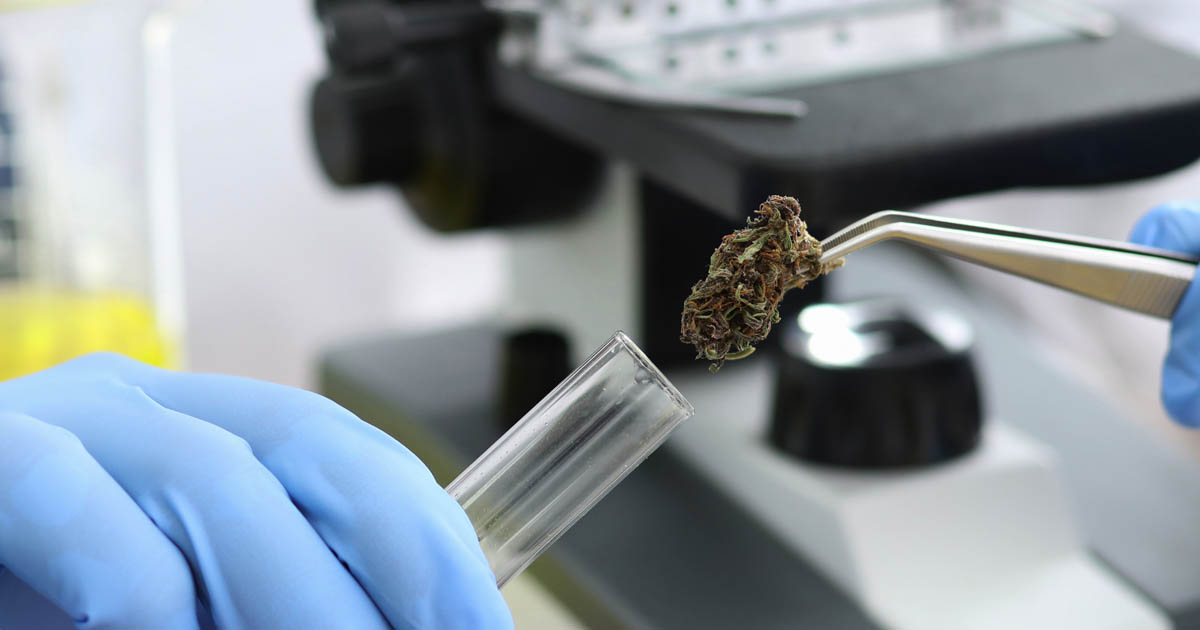70% Off Sitewide! Use code: TAKE70

The Importance of Hemp Lab Testing
If you’ve been shopping around for hemp flower or CBD, you’ve probably heard that you should only buy lab-tested products. However, you may not be aware of the many reasons why testing hemp is so important. It’s much more than a lack of FDA regulation.
Let’s take a look.
The Importance of Hemp Lab Testing for Purity
Hemp plants have an uncanny ability to absorb everything from the soil where they grow. This characteristic makes hemp excellent for cleaning contaminated soil through a process called bioremediation. Biologists have even planted hemp plants to help clean up radiation and heavy metals from the land affected by the nuclear disaster around Chernobyl.
Hemp’s ability to remove toxins from the soil may be a life-saver for the environment, but it also means the hemp you consume could pick up dangerous contaminants as well. Testing for purity becomes even more crucial for inhaled products like smokable hemp flower and CBD vape cartridges. That’s why consumers should purchase hemp and CBD products exclusively from companies that adhere to organic farming practices.
However, even if a company gets its CBD from organic hemp, the final product can be contaminated during the extraction process. These days many manufacturers use cleaner supercritical carbon dioxide to extract hemp, but it’s not always the case. Equipment for carbon dioxide extraction can be prohibitively expensive for some CBD manufacturers.
Many brands still use solvents like ethanol or butane to extract the cannabinoids and terpenes from hemp plants. The process is generally considered safe as long as the solvents are purged completely from the final product. Unbiased third-party lab tests examine the product for any traces of contamination, including pesticides, harmful microbes, heavy metals, and residual solvents.
Why Should We Test Hemp for Potency?
While ensuring that hemp and CBD products are free of contamination is critical, it’s also essential to make sure the products have enough of the good stuff. Some manufacturers only put the tiniest amount of cannabidiol into their products, so they can slap a CBD label on them and enhance the company’s bottom line.
If the CBD topical, edible, or oil you buy doesn’t have enough cannabidiol, it won’t produce any therapeutic benefits. You’ll be frustrated with your lack of results, and you’ll be flushing money down the drain for another product that will sit around until you eventually throw it in the garbage.
Reputable hemp and CBD manufacturers always test their products for cannabinoid content. A respectable company will want to provide customers with the highest-quality CBD products available. The best manufacturers believe in the therapeutic value of CBD and want to share the results they’ve seen from their own personal experiences. It’s a win-win situation. In providing superior quality products, companies reap the rewards of customer satisfaction and repeat business.
The most comprehensive hemp lab testing may also report terpene profiles. Most customers won’t be too concerned about the exact terpenes in their CBD products. However, seeing a lab report that lists dominant terpenes can help customers choose the best products for their personal needs and tastes. As lab-testing becomes more advanced and affordable, consumers will likely see more information about terpenes in Certificates of Analysis.
Hemp Lab Testing for Compliance
According to the regulations outlined in the 2018 Farm Bill, all hemp and hemp-derived products must contain less than .3% delta-9 THC to be considered legal on the federal level.
A lack of compliance may not only cause problems for the company but could mean that you, the consumer, could be inadvertently buying illegal products. We suggest that you keep a copy of a current Certificate of Analysis with any hemp-derived product you purchase. This practice will help you avoid misunderstandings with law enforcement, especially when you’re traveling.
Furthermore, some consumers prefer THC-free products or CBD isolates. Choosing CBD products that contain zero THC is especially crucial for people who may need to pass a routine drug screening.
Transparency in the CBD Industry
With the lack of formal regulation in the CBD industry, it’s vital that reputable brands set high standards for their products and provide customers with easy access to the lab reports for each item.